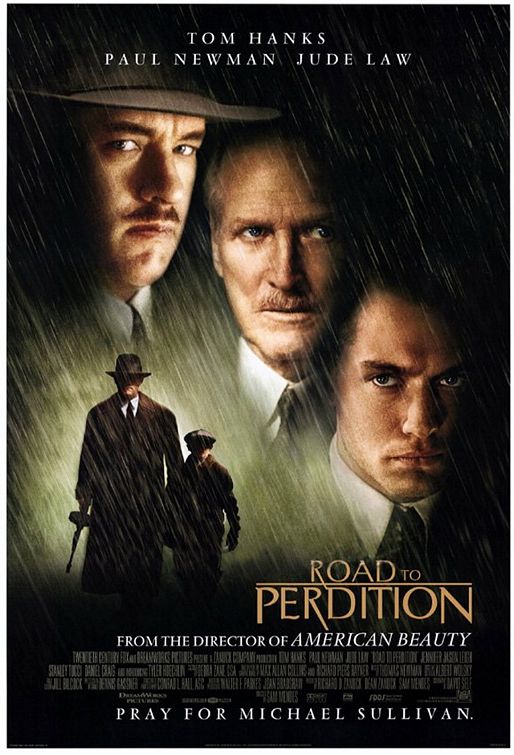
Steven Spielberg. The name itself conjures images of groundbreaking cinema, of worlds both fantastic and starkly real, of stories that have captivated billions across generations. He is, without a doubt, a titan of the film industry, a director whose vision has not only shaped the landscape of modern blockbusters but has also redefined the very art of storytelling on screen. His films, whether as a director or producer, have collectively amassed an astonishing more than $26 billion worldwide, a figure that places him in an echelon almost entirely his own.
Yet, even for a filmmaker synonymous with unparalleled success and a seemingly infallible ‘Midas touch,’ the path is not always paved with gold. Beneath the glittering facade of record-breaking grosses and critical acclaim lie moments of significant financial challenge, films that, for various reasons, failed to resonate with audiences in the way his iconic works did. These box office missteps, though overshadowed by his monumental achievements, offer a compelling look into the realities of filmmaking even at its highest levels, and how a director of Spielberg’s caliber navigates the commercial currents of Hollywood.
Join us as we delve into the fascinating duality of Steven Spielberg’s career, exploring not just the awe-inspiring heights of his box office dominance, but also the crucial lessons and shifts prompted by his less commercially successful endeavors. We’ll unpack how these financial realities, from unexpected flops to critically lauded underperformers, have subtly yet profoundly shaped the trajectory of one of cinema’s most influential voices, demonstrating that even the Bespectacled, Bearded Box Office Bard (as we playfully, if fictitiously, dub him) has faced his share of cinematic catasterous disastrophes.
1. The BFG: A Recent “Catasterous Disastrophe”
In the grand tapestry of Steven Spielberg’s illustrious career, the 2016 adaptation of Roald Dahl’s ‘The BFG’ stands out as a stark reminder that even the most celebrated directors can face significant commercial hurdles. Despite being a big-budget production and a passion project for Spielberg, along with ‘Star Wars’ producer Kathleen Kennedy and Frank Marshall, who had worked on making a movie of the book since the 90s, the film flopped dismally in the United States, managing a mere $19.6 million over the Independence Day weekend. This performance was strikingly poor, especially when compared to ‘Finding Dory,’ which, in its third week of release, still commanded $42 million.
Analyst Jeff Bock noted the fundamental challenge ‘The BFG’ faced in the US market: “These days, Pixar, Minions and Disney’s fairy tale adaptations rule the box-office roost in terms of kids fare. ‘The BFG’ has always been a recognizable children’s book, but not a classic in the U.S.” This lack of pre-existing cultural resonance proved to be a critical factor, highlighting the importance of brand recognition in the competitive landscape of family entertainment. The film landed in fourth place during its opening weekend, trailing significantly behind ‘Dory,’ ‘The Legend of Tarzan,’ and ‘The Purge: Election Year.’
The financial disappointment was considerable, with the movie, which cost $140 million to produce, expected to top out around the $60 million mark in the US. Worldwide, its initial performance was equally disheartening, making just $23 million. This placed ‘The BFG’ as Spielberg’s lowest-grossing movie since ‘Munich’ in 2005, serving as a prominent example of how even a director of his stature can encounter significant commercial miscalculations, particularly when venturing into unfamiliar or less culturally established territory for a new generation of American audiences.
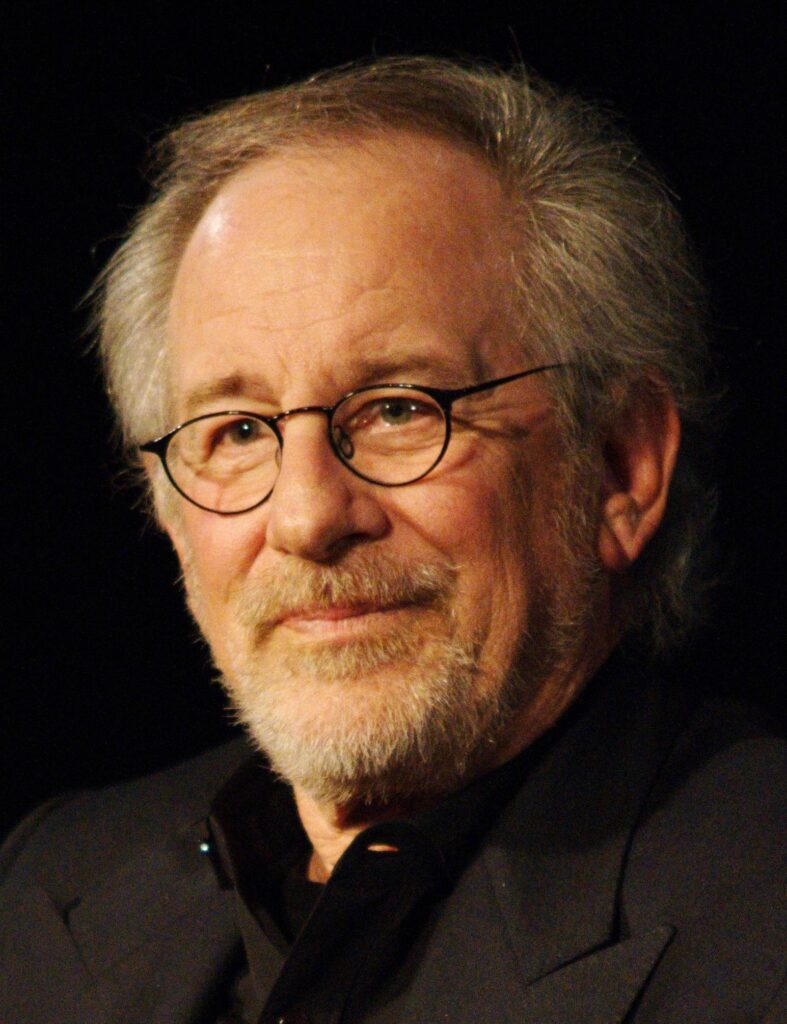
2. 1941: The Original Colossal Bomb.
While ‘The BFG’ represents a recent commercial stumble, it was not Steven Spielberg’s first encounter with a significant box office disappointment. Long before the giant dream-catcher, there was ‘1941,’ a star-studded comedy released in 1979 that stands as his biggest bomb to date. This early career misstep provides crucial historical context, demonstrating that the “Bespectacled, Bearded Box Office Bard” (if we insist on the moniker) has navigated financial downturns throughout his extensive half-century cinematic career.
‘1941’ was an ambitious undertaking, a comedic epic that diverged sharply from the thrilling adventures and sci-fi marvels that had rapidly established Spielberg as a groundbreaking filmmaker with hits like ‘Jaws’ and ‘Close Encounters of the Third Kind.’ Its failure was a notable blip in an otherwise meteoric rise, a testament to the unpredictable nature of audience reception, especially for a director venturing into a genre outside his burgeoning comfort zone. The film’s commercial performance served as an early, albeit impactful, lesson in the vagaries of public taste.
The memory of ‘1941’ lingered for years, influencing perceptions of Spielberg’s commercial viability outside his proven genres. Its status as his “biggest bomb” underscores that even cinematic geniuses are not immune to projects that simply do not connect with the zeitgeist or the intended audience. This experience likely played a role in shaping his future choices, encouraging a more strategic approach to his diverse portfolio while still allowing room for artistic experimentation.
Read more about: Echoes from the Deep: Chronicling America’s Most Devastating Naval Losses of World War II
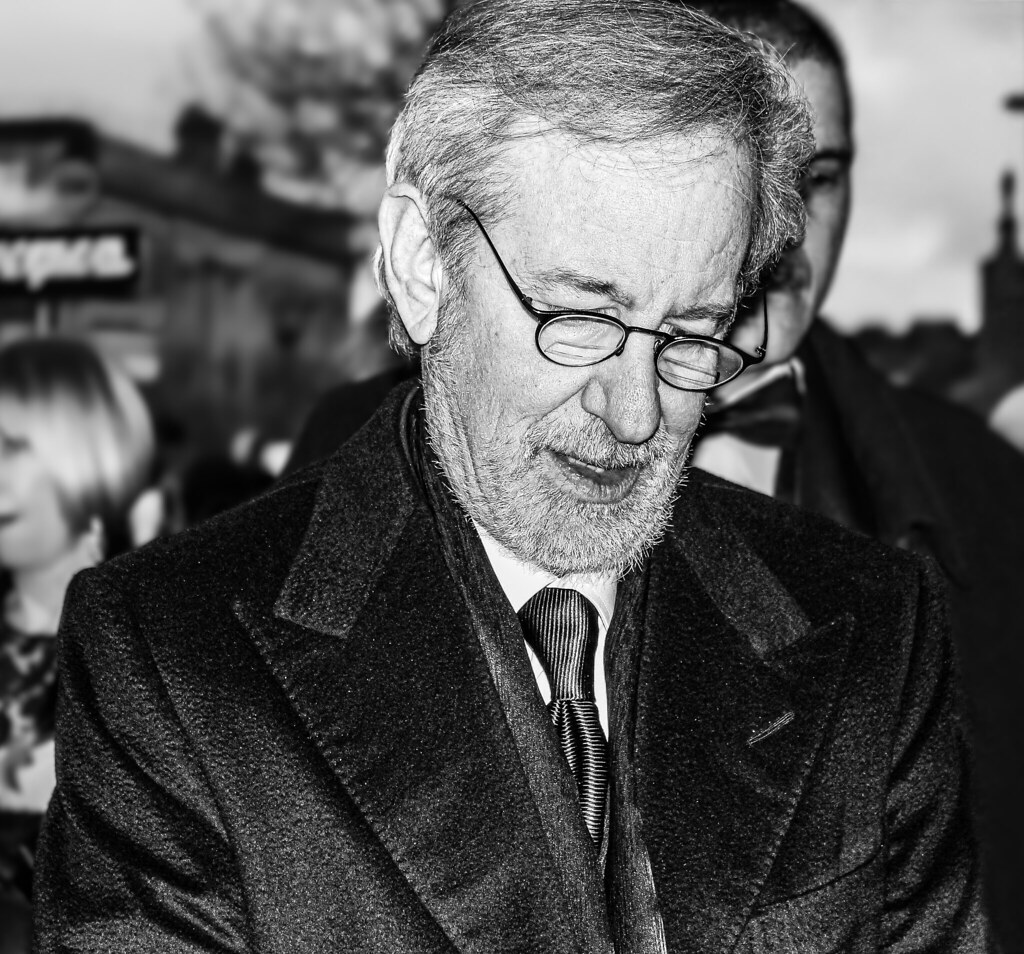
3. Munich: A Critically Acclaimed Underperformer
Fast forward to 2005, and Steven Spielberg encountered another film that, while not a catastrophic bomb on the scale of ‘1941,’ nevertheless struggled to find broad commercial success. ‘Munich’ earned the unfortunate distinction of being his lowest-grossing movie since ‘1941,’ highlighting a pattern where artistically ambitious projects, even from a master director, sometimes face an uphill battle at the box office. This film offers a nuanced perspective on “underperformance,” as its financial returns did not diminish its critical respect or artistic merit.
‘Munich’ delved into a historical epic, a genre Spielberg would increasingly embrace. It was a serious, thought-provoking drama about the aftermath of the 1972 Munich Olympics massacre. While it garnered significant critical attention and awards season buzz, its somber tone and complex themes likely limited its appeal to a wider mainstream audience accustomed to Spielberg’s more accessible fare. The film’s box office performance underscored the challenge of balancing artistic integrity with commercial viability in adult-oriented dramas.
The commercial reception of ‘Munich’ serves as a benchmark for Spielberg’s career, a point against which the financial performance of ‘The BFG’ was measured years later. It illustrates that “success” for a director of his stature isn’t solely defined by massive box office numbers. A film can be a significant artistic achievement, contributing to a director’s legacy and evolving interests, even if its financial footprint is comparatively modest within a colossal filmography. It’s a testament to his artistic courage, prioritizing compelling narratives over guaranteed blockbusters.
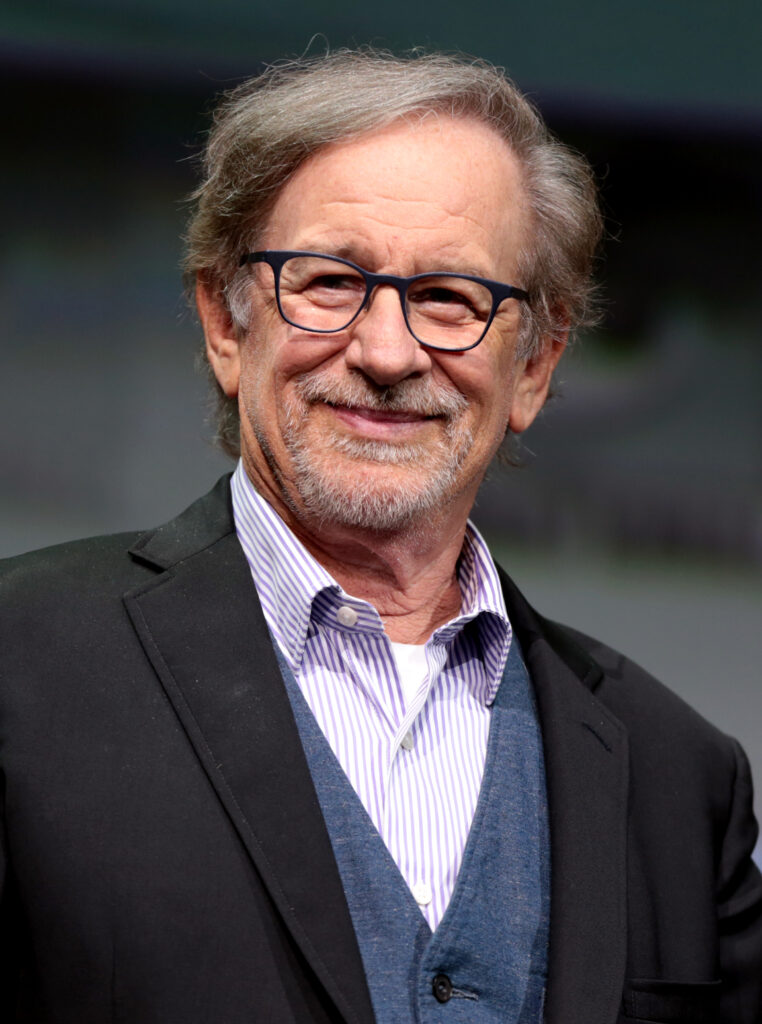
4. The Terminal: An Unexpected Commercial Misstep
The early 2000s saw Steven Spielberg continuing to experiment with various genres, and among these was ‘The Terminal,’ released in 2004. This film, starring Tom Hanks, arrived shortly after Hanks’ remarkable streak of seven consecutive $100 million hits had ended with ‘The Ladykillers.’ Many in the industry anticipated ‘The Terminal’ would reignite that streak, or at least perform robustly at the box office, given the proven chemistry between Spielberg and Hanks and the film’s heartwarming premise. However, it ultimately underperformed, failing to become the anticipated commercial success.
‘The Terminal’ tells the story of an Eastern European tourist trapped at a New York airport, a tale that blended comedy, drama, and a touch of romance. Despite decent reviews and a talented cast, the film failed to capture the widespread audience attention often associated with a Spielberg-Hanks collaboration. Its box office returns, while not disastrous, certainly didn’t match the lofty expectations that typically accompany such a high-profile pairing, prompting questions about its commercial appeal and the market’s reception of its unique narrative.
This commercial misstep underscores that even the most reliable combinations of directorial genius and star power are not infallible. ‘The Terminal’ serves as another example in Spielberg’s career where a well-crafted film with strong performances didn’t quite achieve the financial milestones expected of it. It highlights the unpredictable nature of audience tastes and the intricate balance required to turn critical acclaim and strong talent into undeniable box office success, even for Hollywood’s most esteemed figures.
Read more about: 14 Vintage Boomer Rides Millennials Shun: The Undeniable Reasons Young Drivers Skip These Automotive Legends
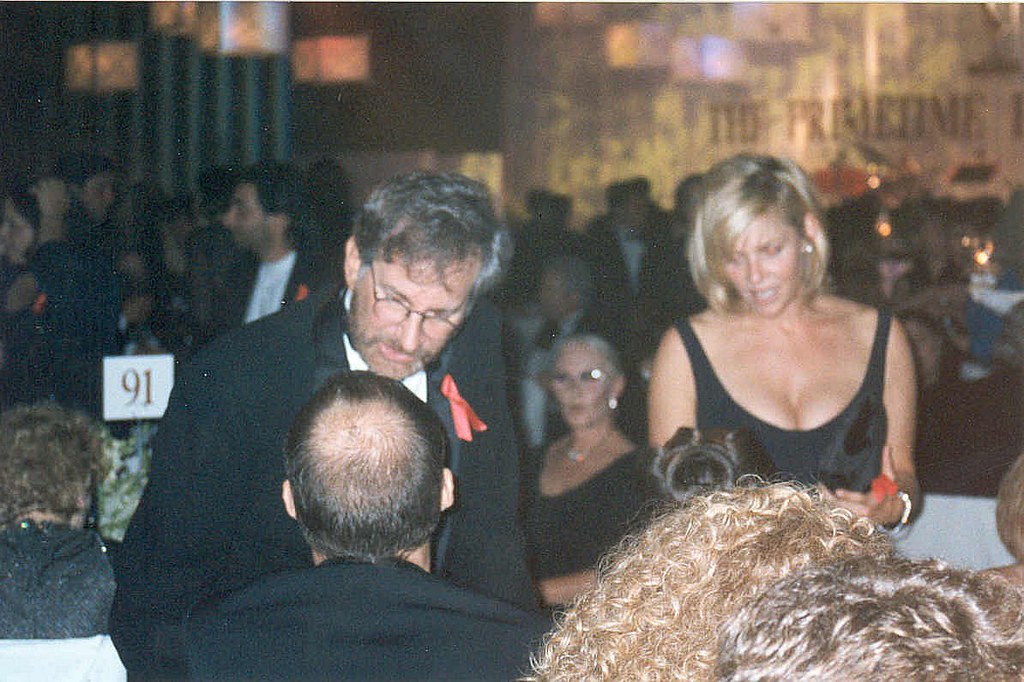
5. The Shift to Historical Epics: A Consequence of Evolving Vision
Examining Spielberg’s career through the lens of box office performance reveals a fascinating evolution in his artistic pursuits, particularly a discernible shift in his preferred subject matter. The context explicitly states, “Since then, Spielberg has increasingly moved away from family movies in favour of historical epics.” This observation is crucial for understanding the director’s path, especially when considering ‘The BFG,’ which was his first film aimed at kids since ‘Hook’ 25 years prior. The commercial challenges faced by ‘The BFG’ could be seen as further validating this long-term shift.
This pivot towards historical narratives, adult dramas, and more complex themes wasn’t necessarily a direct consequence of a single box office bomb, but rather an evolving vision and perhaps an understanding of where his cinematic strengths and passions lay later in his career. Films like ‘Munich,’ ‘Lincoln,’ and ‘The Post’ exemplify this trajectory, showcasing his dedication to exploring significant moments in history and delving into profound human experiences, often with a more mature and nuanced approach than his earlier adventure films.
This stylistic and thematic shift demonstrates a director who, while capable of creating universal blockbusters, also possesses a deep commitment to challenging storytelling. The relative commercial struggles of family-oriented projects like ‘The BFG’ in a changed market, alongside the successes of his historical dramas, reinforce this evolution. It’s a testament to a filmmaker’s ability to adapt, to explore new creative territories, and to allow his filmography to mature alongside his own artistic sensibilities, moving beyond predictable genre confines.

6. The Spielberg Touch: Defining Blockbusters and Cinematic Influence
To fully appreciate the narrative of Steven Spielberg’s box office bombs, one must always contextualize them within the colossal framework of his overall triumphs. Despite the occasional misstep, his name remains synonymous with unparalleled commercial success and cinematic innovation. As the context notes, “Steven Spielberg’s name is synonymous with box office success.” Indeed, as a director alone, his movies have earned $10 billion worldwide, placing him “atop the all-time directors chart, at nearly double his closest competitors.”
This “Spielberg touch” extends far beyond his directorial efforts. As a producer, his influence is even more expansive, with films earning more than $26 billion worldwide. This includes the “Steven Spielberg Presents” movies, which were promoted with his name above the title, like the iconic ‘Back To The Future.’ His stylistic innovations have also become a blueprint for others, with “big hits that borrowed heavily from his style” such as ‘Jurassic World,’ further cementing his status as an industry pacesetter and a master of crafting universally appealing narratives.
The sheer scale of Spielberg’s achievements means that even his commercial disappointments are often viewed through the lens of an otherwise flawless record. His ability to create global phenomena, to consistently deliver films that captivate audiences and redefine genres, is a testament to his enduring genius. This makes the occasional box office bomb not a sign of failure, but rather a rare exception in a career that has otherwise set the gold standard for both artistic ambition and commercial prowess, cementing his legacy as an irreplaceable figure in cinematic history.
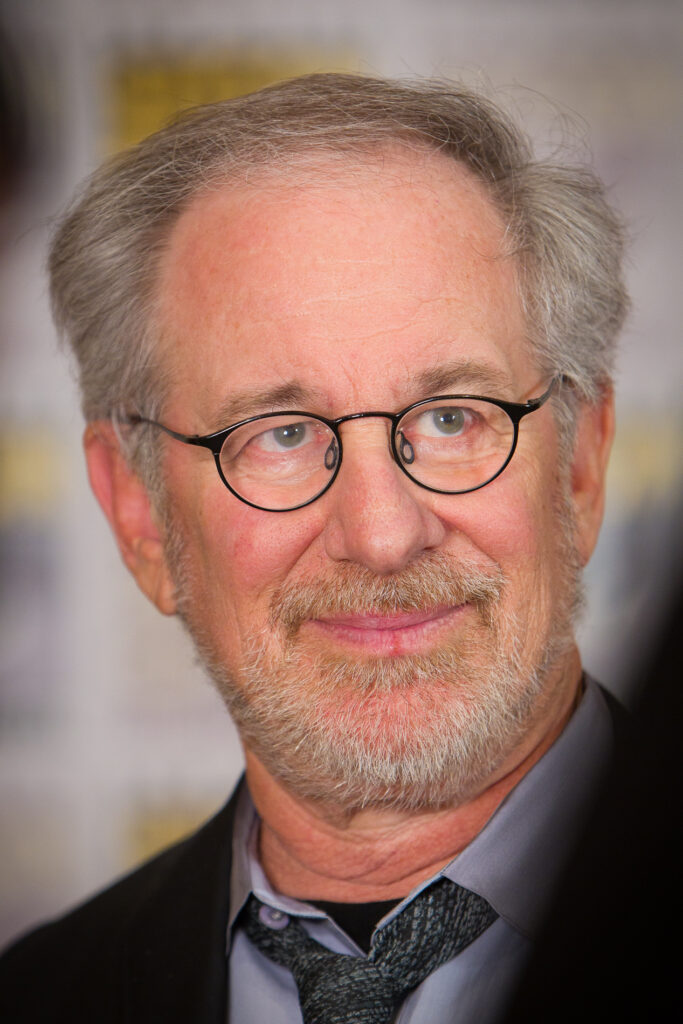
7. Ready Player One: A Nostalgic Return to Blockbuster Form
After navigating a period marked by both critical dramas and a few commercial challenges, Steven Spielberg reminded the world in 2018 exactly why his name remains synonymous with event cinema. “Ready Player One,” a sprawling sci-fi adventure steeped in pop culture nostalgia, arrived as a vibrant testament to his enduring ability to craft visually dazzling and universally appealing blockbusters. It was a film that felt both distinctly contemporary in its themes of virtual reality and profoundly Spielbergian in its execution, blending grand spectacle with a compelling human story.
The film’s opening weekend immediately showcased its commercial strength, earning $41.77 million over three days. This impressive debut marked Spielberg’s best opening weekend as a director in nearly a decade, a clear indicator that audiences were eager to embark on his latest cinematic journey. In a year dominated by colossal releases, “Ready Player One” stood out as the highest-grossing film of 2018 not named “Black Panther” in its opening frame, demonstrating its considerable pull in a competitive market.
While its reported $150 million production budget and significant marketing costs meant the film needed substantial legs to turn a profit, its performance was a reassuring affirmation of Spielberg’s blockbuster prowess. The movie eventually transitioned well to the home market, receiving “better than expected reviews,” which, if not always “Pick of the Week” material, certainly added to its overall positive reception. “Ready Player One” ultimately served as a compelling demonstration that the director could still ignite the imaginations of a global audience with the right blend of innovative storytelling and epic scope.
Read more about: Hold Up! You’re Missing Out On These 14 Must-Play Indie Games That EVERYONE Needs To Experience At Least Once!
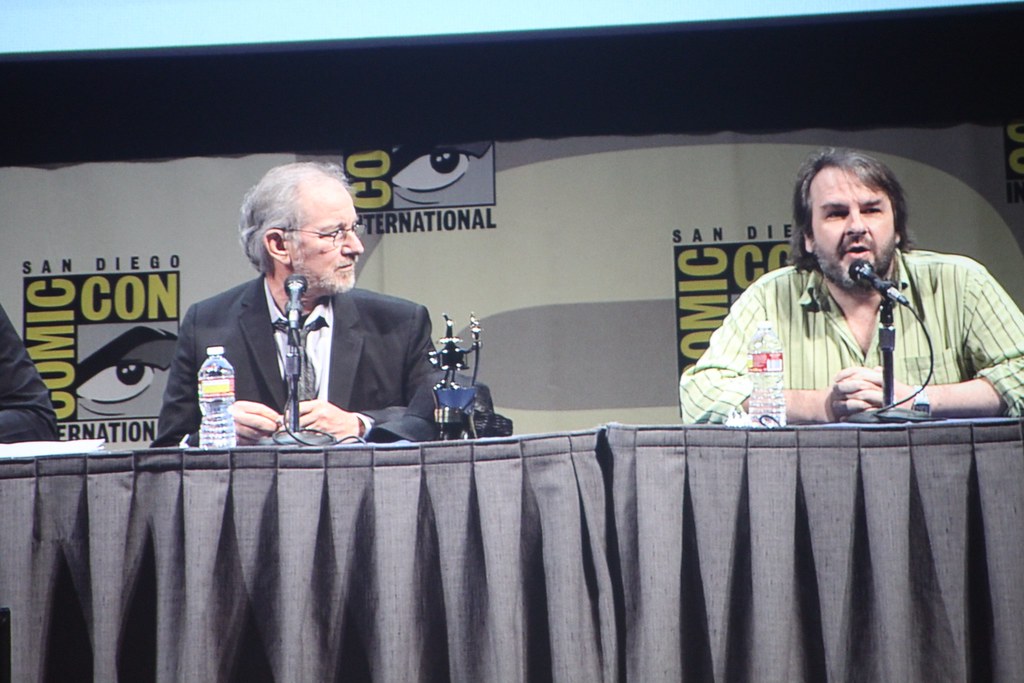
8. West Side Story: Reimagining a Classic with Vision
In a bold and ambitious move that underscored his unwavering artistic curiosity, Steven Spielberg took on the monumental task of reimagining one of Broadway’s most iconic musicals, “West Side Story,” in 2021. This wasn’t merely a remake, but a deeply personal and meticulously crafted interpretation, allowing Spielberg to delve into new creative territories while honoring the foundational material. It was a project that signaled his desire to continuously challenge himself, even after decades at the pinnacle of filmmaking, by exploring a genre many would consider firmly established.
The film debuted with a strategically targeted release, opening in 2,820 locations across North America. This measured approach allowed the musical to find its audience, emphasizing quality and critical reception over a saturation-level launch. Bolstered by a distinguished ensemble cast, including Ansel Elgort and Ariana DeBose, Spielberg’s rendition of the classic tale of star-crossed lovers and urban rivalries was met with considerable anticipation, positioning itself as a significant entry in the year’s cinematic calendar.
“West Side Story” highlighted Spielberg’s incredible versatility, proving that his directorial genius extends far beyond sci-fi epics and historical dramas. His ability to bring fresh perspectives and cinematic grandeur to such a beloved and culturally significant work reaffirmed his reputation as a filmmaker who can masterfully orchestrate diverse narratives. It was a triumphant demonstration of his boundless creative energy, showing that even with a well-known story, the “Bespectacled, Bearded Box Office Bard” (yes, we’re sticking with it, it’s endearing) can offer something truly fresh and impactful.
Read more about: America’s Unfolding Story: A Deep Dive into the Foundational Shifts and Enduring Legacies That Reshape a Nation
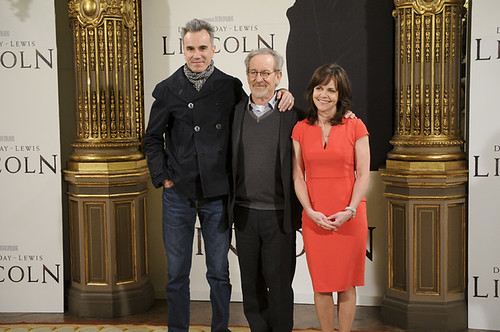
9. The Post: Illuminating Truth in Turbulent Times
Returning to the realm of vital historical dramas, Steven Spielberg helmed “The Post” in 2017, a film that felt particularly resonant given the contemporary political climate. This real-life drama recounted the gripping story of The Washington Post’s battle to publish the Pentagon Papers, a narrative woven with themes of press freedom, journalistic integrity, and the courage to challenge governmental power. It was a timely and powerful cinematic endeavor, underscoring Spielberg’s commitment to chronicling significant moments in American history.
“The Post” assembled an undeniable powerhouse cast, uniting cinematic titans Tom Hanks and Meryl Streep under Spielberg’s direction once more. This dream team, along with a compelling script, immediately elevated the film to awards season prominence. Indeed, it quickly garnered critical attention, earning six Golden Globe nominations, a clear testament to its quality and impact. The film strategically opened in select theaters in December before a nationwide release in January, building buzz and allowing for early critical acclaim to amplify its reach.
The success of “The Post” wasn’t merely measured by its box office, but by its cultural conversation. It exemplified Spielberg’s mature artistic phase, where his narratives often served as thoughtful reflections on history and its enduring lessons. His ability to transform complex historical events into accessible, engaging, and urgent cinema cemented his role as a chronicler of American conscience, demonstrating that his “Midas touch” extends not only to blockbusters but also to poignant, intellectually rich storytelling that resonates deeply with audiences.
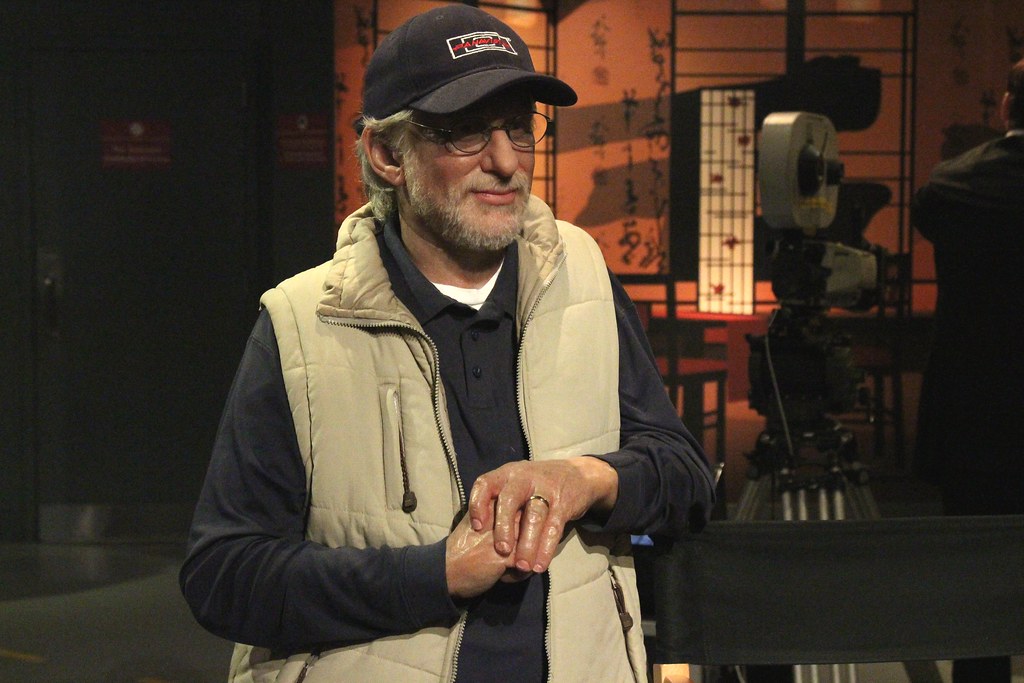
10. Lincoln: A Masterpiece of Historical Immersion
Among Steven Spielberg’s many triumphs, “Lincoln” (2012) stands as a towering achievement, a meticulous and profound exploration of Abraham Lincoln’s final months and his fight to pass the Thirteenth Amendment. From its inception, the film was hailed as an instant Oscar contender, a predestined critical darling. The combination of Spielberg’s directorial vision, a powerful script by Tony Kushner, and Daniel Day-Lewis’s transformative performance as the titular president created a cinematic experience that was both historically rich and deeply moving.
The film’s critical acclaim translated into an impressive awards season haul, cementing its status as a modern classic. “Lincoln” garnered an astounding twelve Academy Award nominations, ultimately securing two wins, including a well-deserved Best Actor award for Daniel Day-Lewis. Its intricate portrayal of political maneuvering and moral courage resonated deeply with critics and audiences alike, with many praising its historical accuracy and the nuanced performances that brought the era to life. Even in pre-Oscar polls, it was a strong contender for Best Picture, taking second place in many predictions.
“Lincoln” exemplified Spielberg’s mastery of the historical epic, demonstrating his ability to immerse viewers in a pivotal moment of American history with unparalleled detail and emotional depth. It transcended mere biographical drama, offering a profound meditation on leadership, sacrifice, and the arduous path toward justice. This film unequivocally reinforced his legacy not just as a creator of fantastical adventures, but as a serious artist capable of crafting deeply meaningful and enduring works that continue to educate and inspire.
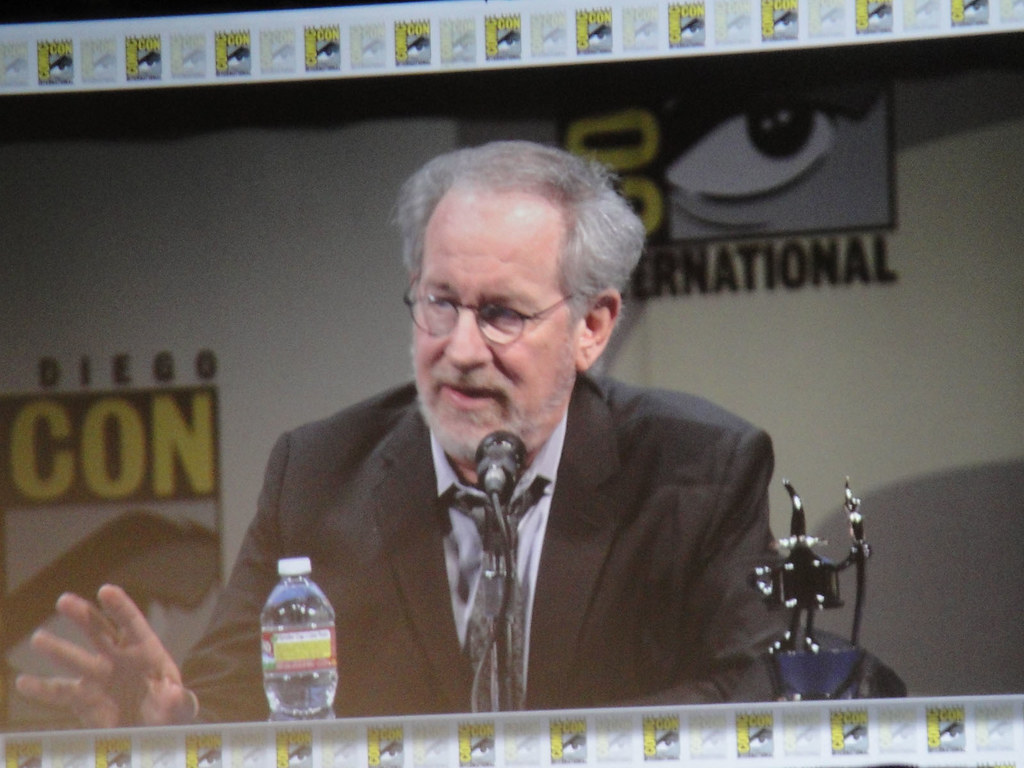
11. Close Encounters of the Third Kind: Defining Sci-Fi Awe
Rewinding to the nascent stages of his legendary career, “Close Encounters of the Third Kind” (1977) cemented Steven Spielberg’s reputation as a visionary filmmaker, following on the heels of his game-changing success with “Jaws.” This sci-fi masterpiece was a profound departure from the monster movie thrills, offering instead a sense of wonder, mystery, and an almost spiritual encounter with the unknown. It quickly became an iconic film, defining a new era of thoughtful science fiction that was both intellectually stimulating and emotionally resonant.
The film was instrumental in establishing Spielberg’s unique cinematic language, showcasing his unparalleled ability to blend grand spectacle with intimate human drama. It was one of the “thrilling adventures and sci-fi marvels” that rapidly established him as a groundbreaking filmmaker, distinguishing him as a director capable of elevating genre fare into high art. The decision to bring this “sci-fi classic” back to theaters years later, as noted by its trailer for a September 1st re-release, is a testament to its enduring popularity and critical acclaim, affirming its timeless appeal to multiple generations of viewers.
“Close Encounters of the Third Kind” not only delighted audiences with its groundbreaking visual effects and captivating narrative but also left an indelible mark on popular culture. Its iconic five-note musical motif became instantly recognizable, and its themes of peaceful alien contact and humanity’s yearning for discovery resonated globally. This film was a pivotal moment in Spielberg’s ascent, demonstrating early on his command of storytelling, his unique ability to evoke awe, and his nascent “Midas touch” in crafting films that both entertained and profoundly moved.

12. E.T. the Extra-Terrestrial: The Unforgettable Heart of Spielberg’s Legacy
No discussion of Steven Spielberg’s cinematic triumphs would be complete without acknowledging “E.T. the Extra-Terrestrial” (1982), a film that transcends genre to become a timeless tale of friendship, empathy, and childlike wonder. Penned by the late Melissa Mathison, who created a screenplay that perfectly captured Spielberg’s tender vision, “E.T.” was an immediate global phenomenon, resonating with audiences of all ages and solidifying his reputation as a master storyteller with an unparalleled grasp of the human heart. It became a film that inspired countless imitations and solidified the idea of a “Spielberg film” as one filled with magic, heart, and adventure.
The film’s commercial success was monumental, becoming the highest-grossing film of its time and holding that record for over a decade. But beyond the numbers, “E.T.” achieved something far more significant: it forged an emotional connection with viewers that few films ever have. Its iconic imagery, from the bicycle flying against the moon to E.T.’s glowing finger, is etched into collective memory, making it a cultural touchstone that perfectly embodied the “Spielberg touch” – the ability to create universal blockbusters that speak to fundamental human experiences.
The lasting legacy of “E.T.” is immeasurable, continuously rediscovered and cherished by new generations, a testament to its powerful narrative and enduring themes. This beloved classic profoundly shaped not only Spielberg’s career but also the landscape of family filmmaking, proving that extraordinary commercial success could be achieved through profound emotional depth. It stands as perhaps the quintessential demonstration of his legendary impact on cinema, a work where his unique vision created an enduring classic.
And so, as we reflect on the illustrious, sprawling career of Steven Spielberg, it becomes abundantly clear that the occasional commercial stumble, while noteworthy for its rarity, is but a fleeting shadow in the blinding brilliance of his cinematic achievements. From the heart-stopping thrills of “Jaws” to the soul-stirring depth of “Lincoln,” and the pure magic of “E.T. the Extra-Terrestrial,” Spielberg has consistently redefined what’s possible on screen. He’s not just a director; he’s a chronicler of dreams, a weaver of worlds, and an architect of our collective cinematic imagination, proving that true genius is not about avoiding mistakes, but about the unparalleled triumphs that follow. His story is one of audacious vision, relentless creativity, and an enduring ability to touch the hearts and minds of billions, securing his place as an eternal titan of the silver screen.


